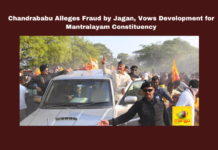More than 70 companies in India will have to start looking for new auditors after the Security and Exchange Board of India (SEBI) banned the firms in the Pricewaterhouse network. This means Pricewaterhouse will not be allowed to issue audit certificates for the next two years.
This ban was implemented after the auditing company was found guilty in the multi crore Satyam Scam case. Pricewaterhouse Coopers (PwC) is one of the major players in the auditing field with nearly 3,000 employees in India and 11 network firms.
The significant order released on Wednesday from the SEBI bars PwC from issuing audit certificates to any listed company in India. The SEBI has also ordered the audit company and its two partners to disgorge unlawful gains of Rs. 13 crores. Currently, PwC network firms take care of the audits for 75 listed companies.
Pricewaterhouse Bangalore and the two partners S. Gopalakrishnan and Srinivas Talluri have been strictly directed to return the wrongful gains of “Rs. 13,09,01,664 with interest calculated at the rate of 12 percent per annum from 7 January 2009 till the date of payment.”
Furthermore, the SEBI has restrained Gopalakrishnan and Talluri from directly of indirectly issuing audit certificates of any listed company for three years.
On Thursday, the PwC stated it was not guilty of any of the charges against them in the Satyam case. The audit company further explained it was confident that they would get a stay on the SEBI order. A statement released by the Pricewaterhouse firm said there was no, “intentional wrongdoing by PW firms in the unprecedented management perpetrated fraud.” It further stated it had learned the lessons of Satyam and worked towards building a high quality audit practice.
But experts have explained that even if PwC gets a stay on the SEBI order, the audit firm still risks of losing clients. Founder of Proxy Advisory Shriram Subramaniam explained, “Listed companies who are being audited may think of moving to other auditors due to the uncertainty, even if Pricewaterhouse manages to get a stay order.”
In 2009, Satyam founder and former Chairman Ramalinga Raju revealed he had overstated earnings and assets for many years. This was a shocking confession and the fraud was called India’s Enron.

































